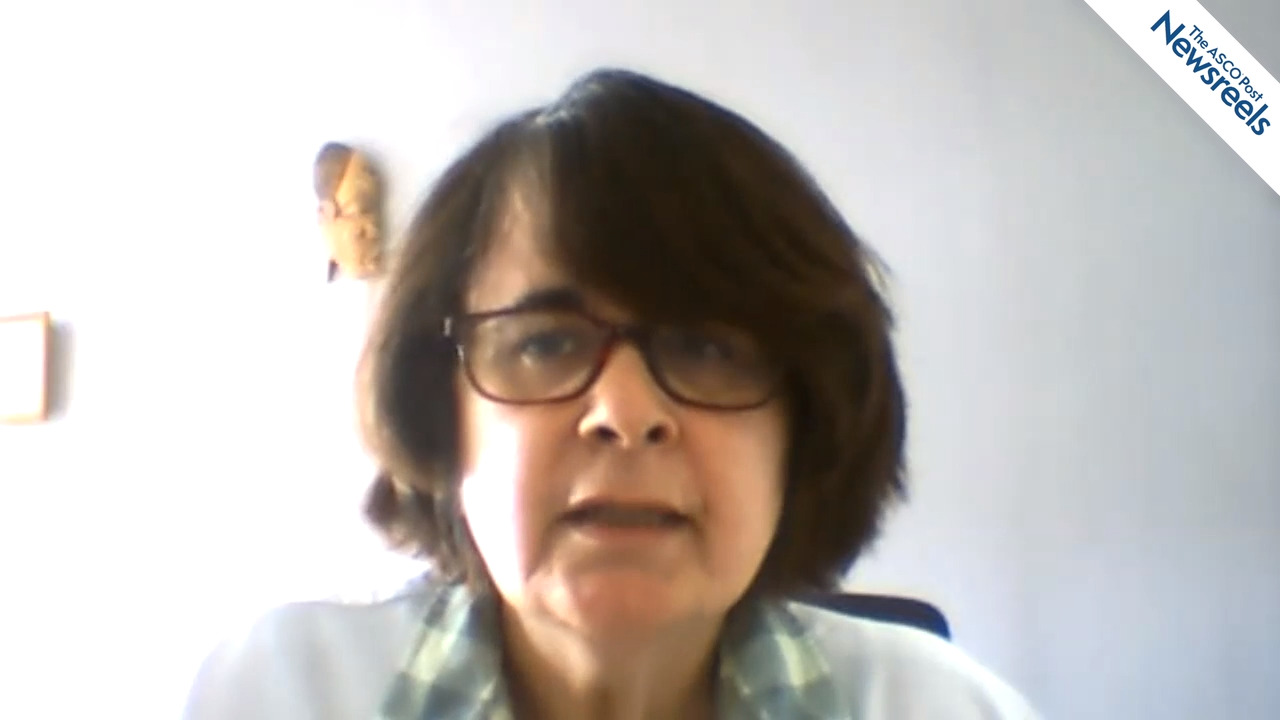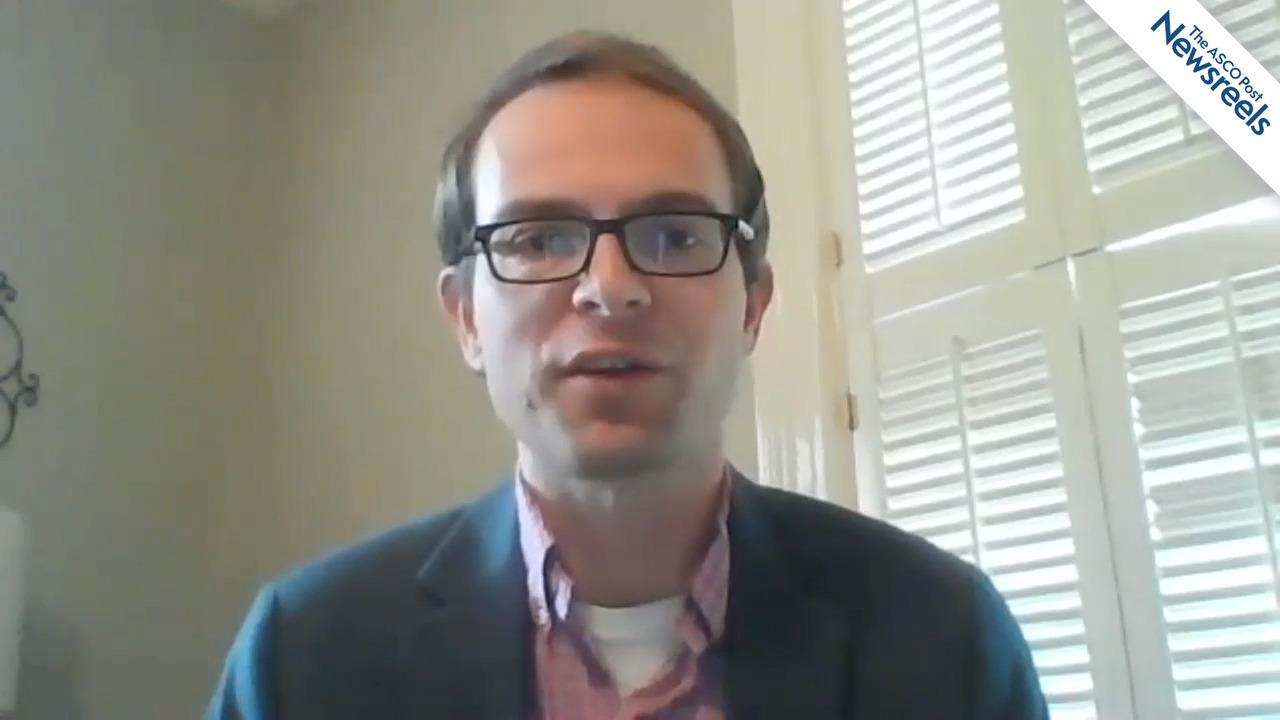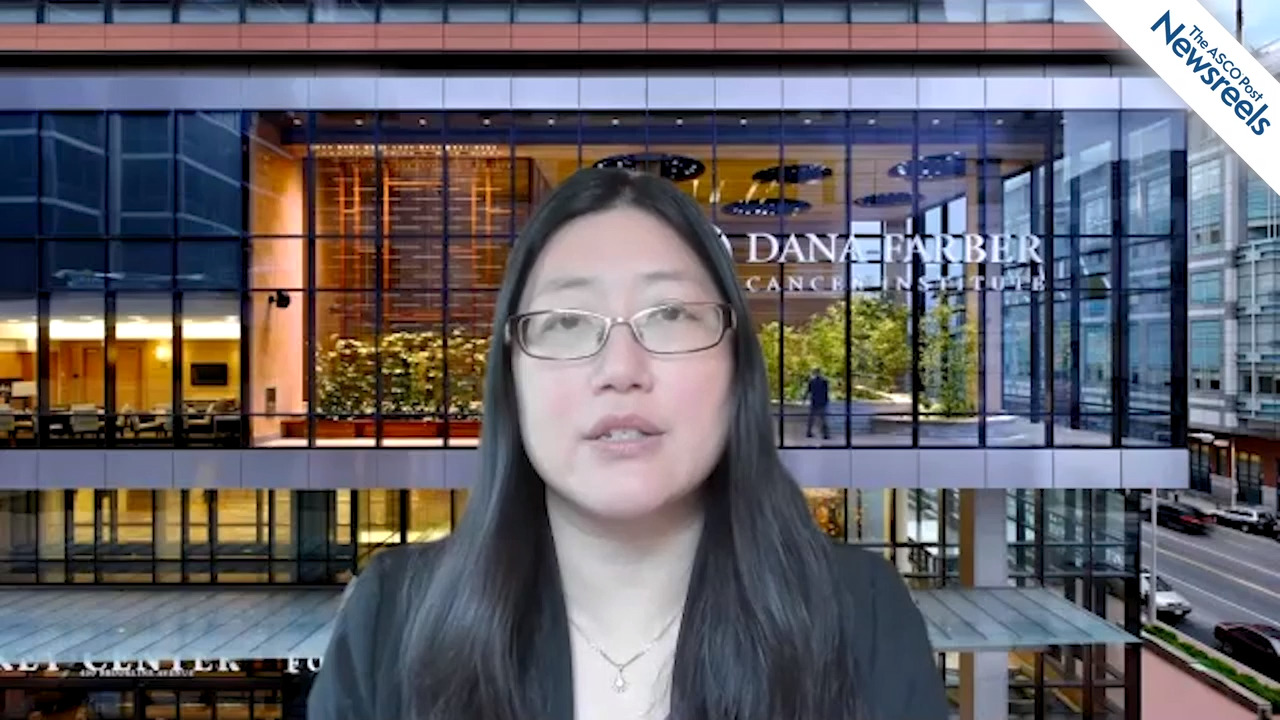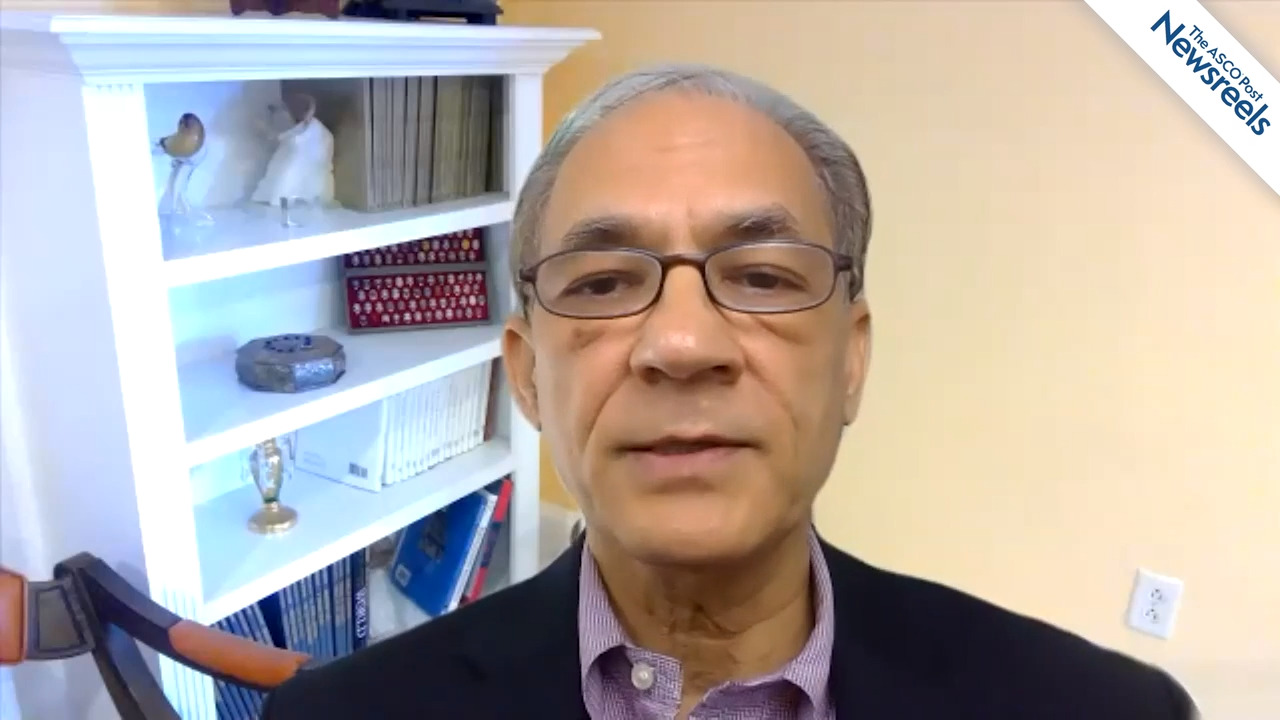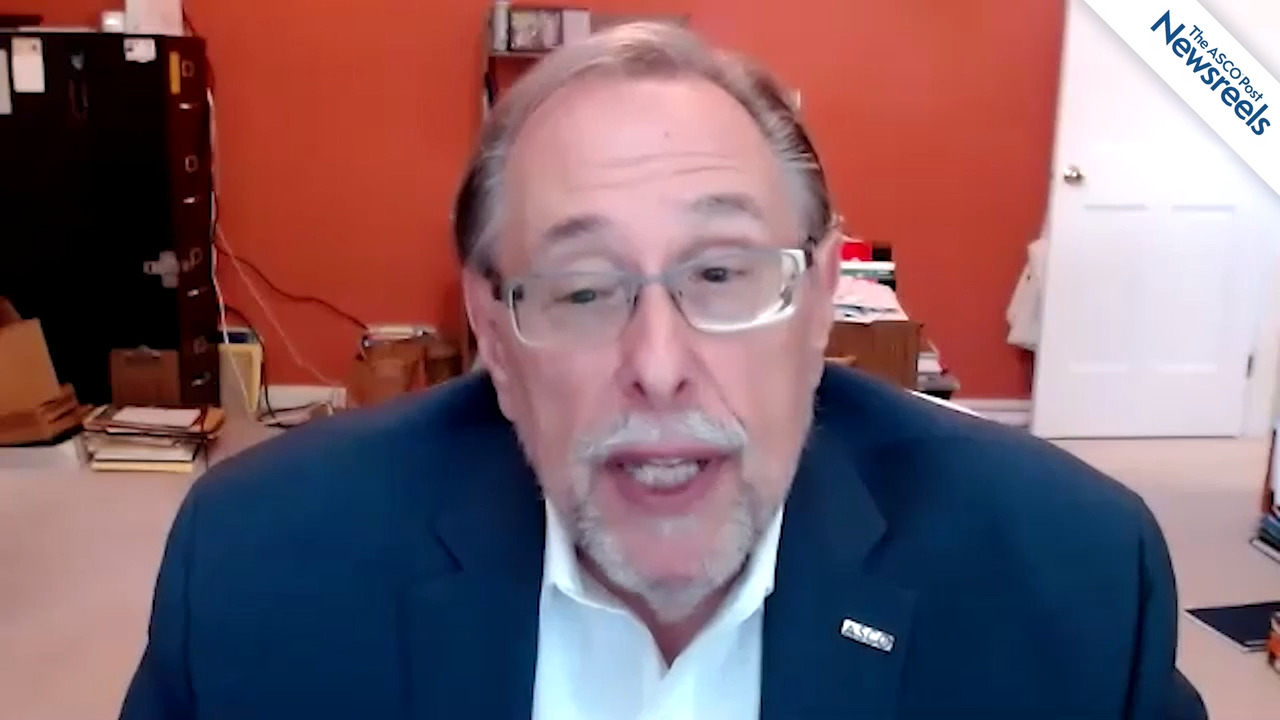Christopher Sweeney, MBBS, and Thomas Powles, MD, PhD, on Urothelial Cancer: The JAVELIN Bladder 100 Study on Avelumab vs Best Supportive Care
ASCO20 Virtual Scientific Program
Christopher Sweeney, MBBS, of Dana-Farber Cancer Institute, talks with Thomas Powles, MD, PhD, of Queen Mary University of London, about the first study to demonstrate a survival advantage with avelumab for metastatic urothelial cancer. In the trial, avelumab improved median overall survival by 21.4 months compared with 14.3 months with best supportive care (Abstract LBA1).
The ASCO Post Staff
Patricia Pautier, MD, of Institut Gustave Roussy, discusses final results of the phase II LMS-02 study, which showed the combination of doxorubicin and trabectedin to be an effective first-line therapy for patients with leiomyosarcoma, with an acceptable safety profile (Abstract 11506).
The ASCO Post Staff
Douglas B. Johnson, MD, of Vanderbilt University Medical Center, discusses three important melanoma abstracts: the need for more than two doses of nivolumab plus ipilimumab in combination immunotherapy; antitumor activity for low-dose ipilimumab with pembrolizumab after disease progression on PD-1 antibodies; and ipilimumab alone or in combination with anti–PD-1 therapy for metastatic disease resistant to PD-1 monotherapy (Abstracts 10003, 10004, and 10005).
The ASCO Post Staff
Nancy U. Lin, MD, of Dana-Farber Cancer Institute, discusses the HER2CLIMB study of patients with previously treated HER2-positive metastatic breast cancer that had metastasized to the brain. Adding tucatinib to trastuzumab and capecitabine doubled the intracranial response rate and reduced the risk of death by nearly half, compared with trastuzumab plus capecitabine (Abstract 1005).
The ASCO Post Staff
Nikhil C. Munshi, MD, of Dana-Farber Cancer Institute, discusses initial results from the KarMMa tria, showing that idecabtagene vicleucel, a B-cell maturation antigen-targeted CAR T-cell therapy, demonstrated deep and durable responses in patients with heavily pretreated relapsed or refractory multiple myeloma. Efficacy and safety data support a favorable clinical benefit-risk profile across the target dose range (Abstract 8503).
The ASCO Post Staff
Richard L. Schilsky, MD, Chief Medical Officer of ASCO, talks about some of the most important and practice-changing findings presented this year at the ASCO20 Virtual Scientific Program, including the use of targeted and immunotherapies in earlier lines of therapy, where they have made a significant impact.
